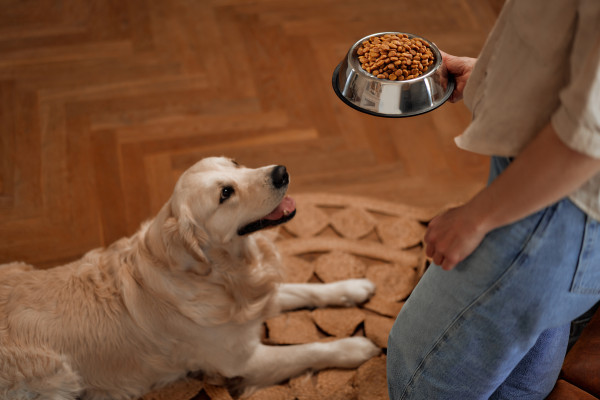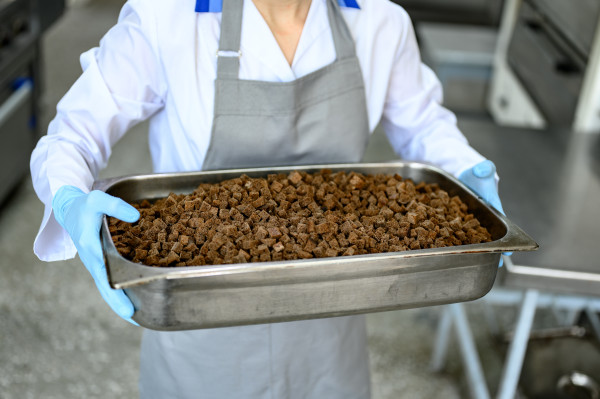
Recall Preparedness: What, Me Worry?
No pet food company plans to have a recall. Unfortunately, even with guidelines from the Food Safety Modernization Act (FSMA)—such as Good Manufacturing Practices (GMPs), strict finished product segregation, and traceability measures—problems can still occur. Events such as failure to comply with product specifications or regulatory requirements, as well as inadvertent human error within the best quality programs, could potentially lead to a recall.
The best time to be prepared for a pet food recall was yesterday. But this doesn’t mean today is too late, even if a company has no plan or their current recall plan is not robust.

Photo by ORION_Production
Recall Preparation in Practice
Navigating a recall process, including the investigation itself, interactions with regulatory enforcement officials, and media communications, can be devastating to a company that is not prepared with a robust recall plan. A company may have little to no training in recall protocols or may think it has a sufficient plan in place, only to find out when it is too late that its plan was severely lacking in the right components and details. This is why it is critical to have experts to guide a company during this period. For many pet food companies, these will be external experts working on their behalf to help navigate a recall situation.
The best foundation for a good recall plan is a first-in-class food safety, quality assurance, and regulatory program. Industry experts can review, make recommendations, and help implement stringent sanitation procedures, quality control guidelines, segregation plans, and testing practices to reduce the likelihood that a company will have to endure a recall. But, even with the best quality programs, there are always chances for a recall to occur. This means it is imperative to have a robust plan in place to account for the production, retention, and records traceability that is vital in any recall procedure. Experienced personnel, both internal and external, are crucial in mitigating the financial and reputational damages that can potentially occur.
Another important aspect to prepare for is how to manage the consumer, media, and veterinary perception crises that are often associated with a recall event. Whether a recall is initiated by the company itself or the FDA, the key to successfully managing the situation is swift and confident action. In many cases, the appropriate management, production, and quality personnel will work with an external expert team to efficiently and swiftly initiate all the necessary steps. This support includes providing veterinarians, nutritionists, regulatory professionals, and pet industry media experts with the right messaging, which will be vital in reassuring consumers who are concerned about their pets’ health. Having the support of veterinary and industry professionals who can serve as the trusted voice of a company’s message is crucial in the event of a recall, when easing consumer concerns is most critical. A focused, consistent message that centers on how the company is doing everything with the best intentions for the continued safety of pets and their owners is key.
Media management is also critical in a recall event. The media wants to get a quick headline and story. If a company cannot provide satisfactory answers to the “who, what, where, when, why, and how” questions, the media—and ultimately the public—will answer those questions for them, and the real story may be overshadowed. Silence, or “no comment,” is not a good answer in these situations. Pet food industry professionals with extensive industry experience can support your company during these challenging times, effectively making or breaking a brand.

Photo by karmanovalive
Why Expertise Matters
Firms that receive the necessary support to prepare for potential events during a recall are proactively setting themselves up for success, even when faced with a negative outcome. Preparatory work—such as helping draft pre-prepared statements to facilitating “mock” recalls, which involve real-life simulations of events that typically occur during a recall event—is an example. Even media training to help prepare company associates for the inevitable questions they will likely receive is paramount.
Working with experts, such as those at BSM Partners, who will actively support the brand throughout the entire process is key to navigating a recall event. This support helps lessen the emotional, physical, and financial stress of recalls as much as possible. Sometimes, unfortunate events occur to reputable companies. People are human, and “to err is human.” That’s why it is so important for a pet food company to have the right technical support when they need it most.
Follow us on LinkedIn for the latest updates on all things happening here at BSM Partners.
About the Author
Dr. Bradley Quest, DVM, is the Principal Veterinarian at BSM Partners. He has practiced clinical veterinary medicine, developed and tested hundreds of pet food and health products, performs extensive animal health research, and helps navigate pet food ingredient approval for clients.
This content is the property of BSM Partners. Reproduction or retransmission or repurposing of any portion of this content is expressly prohibited without the approval of BSM Partners and is governed by the terms and conditions explained here.